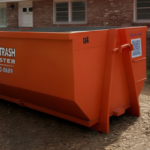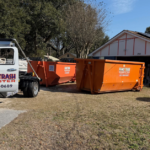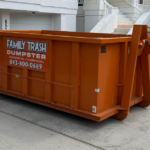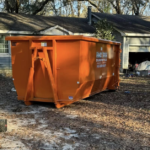Every commercial kitchen produces waste. But did you know the average restaurant can generate over 15 pounds of grease per day? Managing that waste properly is critical—not just for operations, but for the community too. This is where sludge containers come in.
Restaurants in coastal regions have specific needs when it comes to storing and transporting greasy or wastewater-heavy materials. Using the right sludge container in John’s Island is more than just a cleanup solution—it’s part of daily operations.
Why Restaurants Use Sludge Containers
Running a busy kitchen involves more than prepping food. Handling waste responsibly is part of the job. Sludge containers offer a simple way to manage liquids, solids, and fats that standard dumpsters can’t handle.
Common sources of sludge in restaurants:
- Grease traps and interceptors
- Mop water from tile and floor cleanups
- Leftover sauces, oils, and liquid waste
- Dishwashing overflow and filtered solids
In locations like sludge containers in John’s Island, these waste materials need special handling due to proximity to waterways and sensitive ecosystems.
Managing Grease the Right Way
Used cooking oil and grease are more than messy—they’re regulated. Letting them go down the drain causes blockages and fines. Restaurants collect this waste in holding tanks or traps. But eventually, that greasy mess needs to be hauled off-site.
This is where sludge containers come in. These sealed, heavy-duty containers:
- Prevent leaks and odors
- Handle high-volume liquid waste
- Make it easy to schedule pickups
Some kitchens rotate between full and empty containers weekly to keep things flowing. On James Island, where space can be tight, compact containers are a popular option.
Wastewater from Daily Cleaning
In addition to grease, restaurant cleaning practices create gallons of wastewater. Floor cleaning, dishwashing, and equipment rinsing leave behind liquid waste that’s often full of food particles and oils.
Sludge containers in James Island are often positioned behind restaurants near floor drains. Some businesses opt for a shared container between multiple tenants in a plaza or market space. These containers keep wastewater out of storm drains and allow for proper disposal.
Stay Compliant with Local Waste Rules
Both John’s Island and James Island fall under Charleston County guidelines. Local restaurants must follow specific regulations about how grease and liquid waste is stored, reported, and removed.
Having the right sludge container helps with:
- Staying compliant with county regulations
- Avoiding costly sewer system violations
- Keeping grease traps from overflowing
Restaurants that operate without an approved waste removal process can face penalties or inspections. With so many local eateries, using containers the right way keeps operations smooth and risk-free.
Choosing the Right Sludge Container
Not every restaurant needs a 1,000-gallon tank. Here’s what to consider when picking the right size and type:
- Size of your grease trap: The larger the trap, the more frequent your pickups.
- Volume of liquid waste per week: More dishwashing and food prep equals more wastewater.
- Access to outdoor space: Some kitchens have rear loading zones; others need compact options.
- Pickup frequency: Weekly, bi-weekly, or on-call service depends on how fast your container fills.
Family Trash SC: Local Solutions for Local Kitchens
For restaurants in coastal towns like John’s Island and James Island, working with a waste service that understands the local setup makes a difference. Family Trash SC offers flexible sludge container rentals and scheduled pickups to match your kitchen’s flow.
With experience across commercial kitchens, food trucks, and pop-up vendors, they provide:
- Container options sized for tight alleyways or large restaurant lots
- Fast pickup service to prevent overflow
- Simple rental agreements and quick setup
They help restaurants stay focused on food, not waste.
Final Thought
Running a clean kitchen means more than what customers see—it includes how you handle the mess behind the scenes. For restaurants in John’s Island and James Island, sludge containers are a key part of responsible waste management.
Choosing the right service keeps your kitchen efficient and your business compliant. With partners like Family Trash SC, managing grease and wastewater doesn’t have to be complicated.






